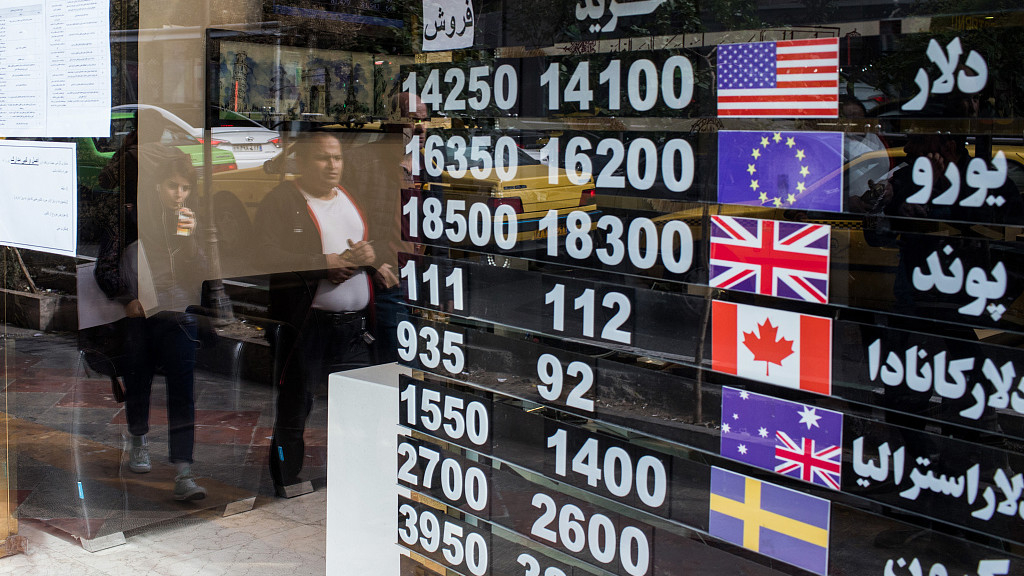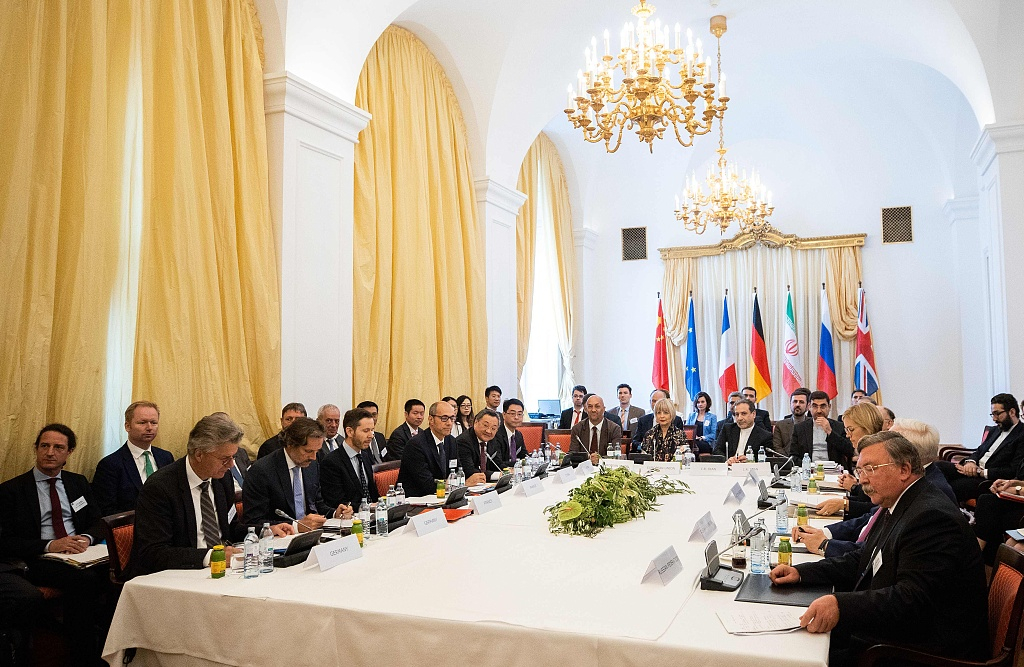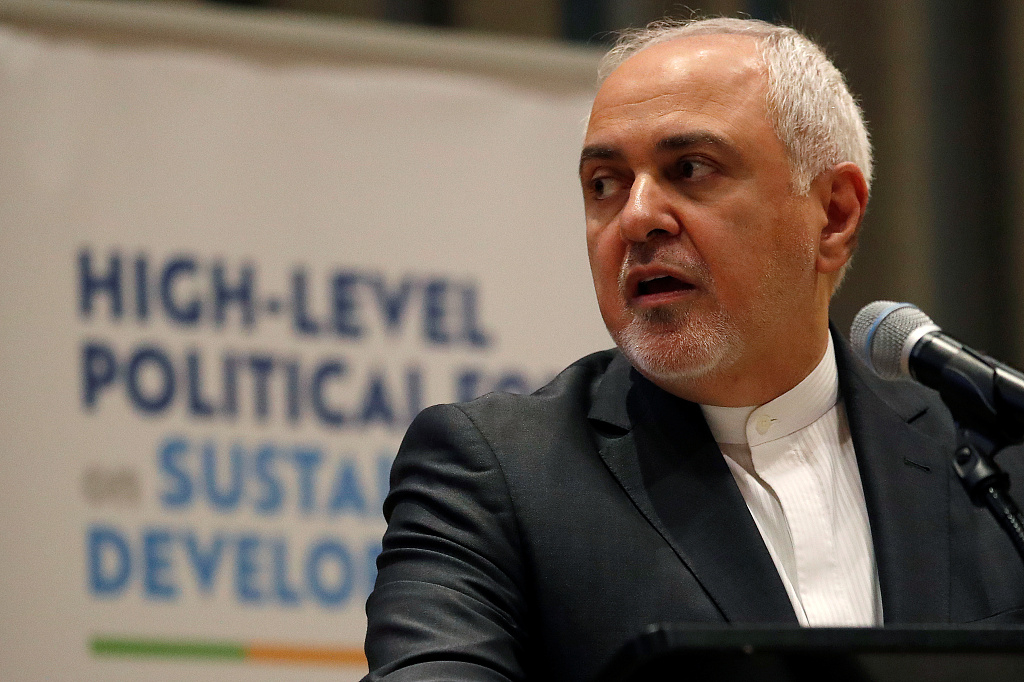

Editor's Note: Bobby Naderi is a journalist, current affairs commentator, documentary filmmaker and member of the Writers Guild of Great Britain. The article reflects the author's opinion, and not necessarily the views of CGTN.
On Sunday, July 28, Vienna once again reached another of those recurring tinderbox moments relating to the Iran nuclear deal, when Iran and the remaining parties of the P5+1 (UN Security Council's five permanent members plus Germany), mainly China, Russia, the UK, France and Germany, in an extraordinary meeting, discussing ways to save the historic 2015 pact in the face of increasing U.S. sanctions and tensions.
During the constructive gathering, all the parties agreed that they were on the same page about implementing the deal in a balanced manner, while expressing strong opposition to unilateral U.S. sanctions against Iran.
All the parties agreed that U.S. sanctions are the biggest strain on the deal at this point, leaving them struggling to deliver Iran the promised sanctions relief the deal calls for.
All the parties also agreed that Iran's decision to move away from honoring all terms of the deal on their side unless the sanctions relief comes is the problem and that the solution is to protect Iran's trade from U.S. sanctions.
The blunt reality is that the parties still do not know how to do that collectively. Russia and China have already been mostly ignoring the U.S. threats and trading with Iran under international law and in local currencies. But EU nations are yet to follow suit. That said, the steps taken so far by Iran are reversible. Moreover, the Vienna talks were constructive, and there were lots of commitments. But trust is only earned when actions meet words.

Abbas Araghchi (center R), political deputy at the Ministry of Foreign Affairs of Iran, and the Secretary General of the European Union's External Action Service (EEAS) Helga Schmid (center L) with their delegations attend the meeting of the partners of the international nuclear agreement with Iran at Palais Coburg in Vienna, Austria, July 28, 2019. /VCG Photo
No doubt China and Russia will not be disappointed twenty years from now by the things that they have done to save the deal. The time is now for EU parties to the agreement to throw off the bowlines, sail away from the safe harbor, catch the trade winds in their sails, and explore and discover mutual trust with Iran. They need to speak with honesty and act with integrity.
Britain, Germany and France need to act as what they do, will make a difference. It will help salvage the ailing 2015 pact and save Iran-Europe ties which are also under strain. In the words of Iran's Deputy Foreign Minister Abbas Araghchi: "They must not create any obstacles in the way of Iran exporting its oil." The agreement, which was ratified by the United Nations Security Council and offered Iran relief from global sanctions in exchange for curbs on its nuclear program, is in danger of unraveling and the only way out is to fight Washington's sanctions.
They all have grounds to say the U.S. is violating international law. The International Atomic Energy Agency has so far issued 15 reports that verify that Iran has complied with the accord. Quite the opposite, the U.S. government has not been honoring the deal. Instead, President Donald Trump and his Israeli counterpart Benjamin Netanyahu continue to plow ahead with cartoonish allegations to bury the deal – which most Americans support, despite the disinformation campaign against it.
As maintained by Iran, the agreement will not be renegotiated. In the words of Foreign Minister Mohammad Javad Zarif: "When you buy a house and move your family in, or demolish it to build a skyscraper, you cannot come back two years later and renegotiate the price." It is indeed Iran – and not the U.S. – that has serious grievances and much to demand in terms of economic and diplomatic concessions.

Iranian Foreign Minister Javad Zarif addresses a High-Level Political Forum on Sustainable Development at the UN headquarters in New York, U.S., July 17, 2019. /VCG Photo
The U.S. government not only refuses to allow American companies to do business with Iran but it also repeatedly violates the agreement by bullying others to prevent businesses from returning to Iran. As a consequence, many international banks and financial institutes are afraid of doing business with Iran, and when it comes to full access to the SWIFT banking system, it is a no go for Iran too.
What's certain is that if the EU does not help Iran see the economic benefits of the deal, Iran will exercise its right to respond, in a manner of its choosing – and take the third step. That's according to many official statements we hear from Tehran. As per international law, US sanctions violate the deal and Iran reserves the right to also file a complaint against the U.S. with the Commission that polices violations.
Even with the increasingly sharp exchanges between the U.S. and Iran, all signatories said in Vienna that the accord is working and they are recommitted. At the same time, the Trump administration has sought to penalize Iran with sanctions not directly covered by the agreement. Trump withdrew from the deal, and his administration is responsible for all the consequences.
No one in Vienna was fooled by the U.S. administration's accusations that Iran has breached the agreement. The deal itself was only about Iran's nuclear program, to lift the sanctions regime, and to help bring Iran back into the global economy. It was not supposed to deal with other non-nuclear issues. From the standpoint of Iran, Russia, China, and even the EU, not certifying the deal or re-imposing sanctions, constitute a material breach of the deal.
As predicted, the United States has been the one to sabotage this deal deliberately. However, one thing is certain: Washington will not be able to force Tehran to renegotiate the deal, much less stay in it and confine itself to the JCPOA's terms such as the transparency and inspection measures that Iran has found so intrusive but which it had to agree to under the deal and is yet to see its economic benefits.
(If you want to contribute and have specific expertise, please contact us at opinions@cgtn.com.)

Copyright © 2018 CGTN. Beijing ICP prepared NO.16065310-3
Copyright © 2018 CGTN. Beijing ICP prepared NO.16065310-3